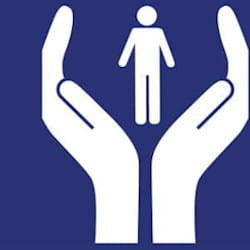Apologising when things go wrong is an essential part of practice and can assist in maintaining good patient relationships. A sincere apology can often lead to earlier resolution of complaints. Apologies can demonstrate insight and professionalism and do not of themselves amount to admissions of liability.
Basic considerations
There is a professional (medical and dental) duty of candour to be open and honest with patients or those close to them. This includes offering a suitable apology when things go wrong and, in some circumstances, when there has been a near miss. There is also a statutory duty of candour that applies to healthcare organisations. The professional duty obliges clinicians to assist their healthcare organisation to comply with this statutory duty.
An apology should include the following:
- a clear expression of regret
- an acceptance of what went wrong
- demonstration of responsibility for what happened
- an acknowledgement of the effect of problems have had for the idividual(s).
- the reason why things went wrong
- Details of steps taken to remedy the situation and/or prevent it from happening again.
Below are examples of applying what is sometimes referred to as the 4Rs of an apology:
- Regret: “I am sorry that your prescription was not available today.”
- Responsibility: “We didn’t action your request for repeat medication on time.”
- Reason: “We were short staffed due to illness.”
- Remedy: “Your prescription has been processed and is ready for collection.”
- Regret: “I am sorry that your denture was not ready for your appointment when you attended today.”
- Responsibility: “We should have checked whether it had arrived at the practice before your appointment”
- Reason: “We did not follow our usual protocol yesterday to ensure all expected laboratory work had arrived at the practice.”
- Remedy: “I have contacted the laboratory and confirmed its delivery for tomorrow and so our practice manager will contact you to arrange a further appointment at your earliest convenience.”
It is important to use language the patient/representative/complainant understands.
Remember that the individual, who may feel vulnerable at this time, may need ongoing advice, support and clinical care. They should be informed how to access this.
Saying sorry
Words like ‘apology’ and ‘sorry’ can be used differently depending on the situation. Sometimes you will need to apologise where something went wrong. In other situations, saying sorry is appropriate to show that you recognise and acknowledge the concerns and their impact on the individual/complainant. Expressing empathy in this way demonstrates you have listened and are open to discussing their concerns further. This can often prevent complaints arising or escalating and is also helpful at the early stages of a complaint investigation.
Fear of litigation is understandable, but should not prevent a clear and honest apology when a patient has been harmed or upset when something has gone wrong in their care. However, you should avoid speculating on what the outcome would have been had the error not occurred.
Practical tips
- The apology should be personal to the specific circumstances. Do not use a template response.
- Be specific in your apology. Avoid statements like “If I did anything wrong, I am sorry”.
- Keep the apology short and genuine.
- A personal apology using “I am sorry...” is better than using third-party terms such as “The practice is sorry” or more complicated or ambiguous language.
- Avoid using ‘if’, ‘but’ or ‘any’, for example:
“I am sorry if you were upset…”.
“I apologise for any distress that may have been caused”.
“I apologise on behalf of the practice for the error, but…” - If a complainant states that the situation has caused them distress, the response should acknowledge this: for example “I am sorry that you were distressed…”.
- Avoid blaming others, including the complainant. While it is appropriate to set out the facts in professional terms, avoid statements like “This was all down to the pharmacy’s error” or “This wouldn’t have happened if you arrived on time for your appointment”.
- Do not diminish a complainant’s experience, for example “No one has complained about this before”.
- Consider if you should also offer to apologise in person. Please see our advice on meeting with a complainant.
Key points
- Healthcare professionals must be open and honest when a mistake has been made.
- Explain to patients/complainants what went wrong and listen to their concerns.
- Saying sorry is not an admission of guilt or liability.
Further guidance
- Apologies (Scotland) Act 2018
- General Medical Council. Openness and honesty when things go wrong: The professional duty of candour
- General Dental Council. Being open and honest with patients when something goes wrong [The professional duty of candour]
- Scottish Public Services Ombudsman: Menaingful apologies
- NHS Resolution: Saying sorry
- Parliamentary and Health Services Ombudsman (PHSO): Providing a remedy
MDDUS Training & CPD resources: www.mddus.com/training-and-cpd
This page was correct at the time of publication. Any guidance is intended as general guidance for members only. If you are a member and need specific advice relating to your own circumstances, please contact one of our advisers.


